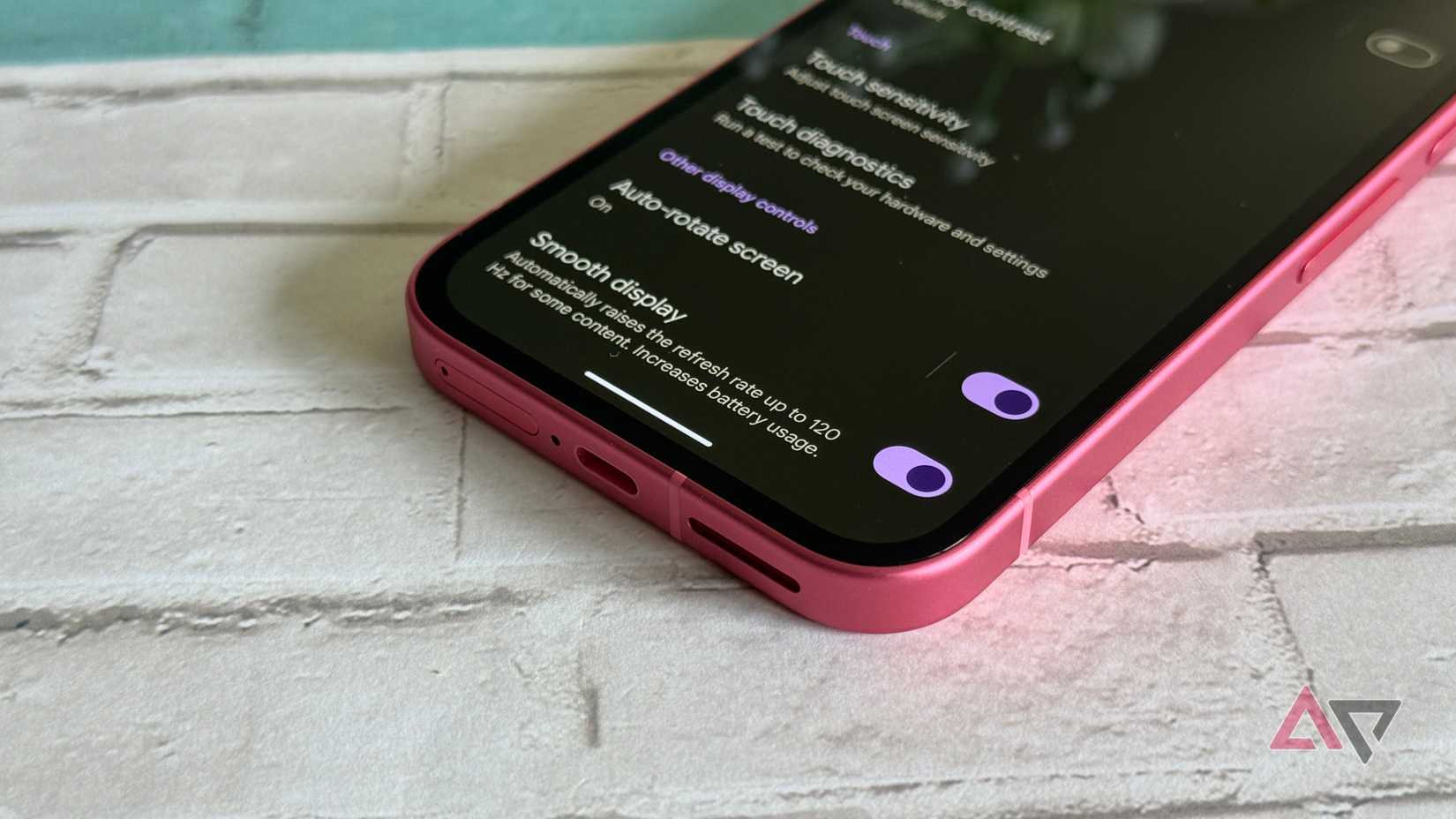Smartphones in the modern era offer a lot of features.
Some would argue too many, with the settings menu now featuring dozens of drop-down menus, toggle switches, and small text explainers that can help you customize your phone in a myriad of virtually unnoticeable ways.
Given this, it’s easy for users to toggle on a particular feature without realizing the impact it might have on their experience.
That’s what happened to me when I toggled on the Smooth Display feature on the Google Pixel 10 Pro, expecting it to provide a noticeably better video on the device, and that’s it. Tragically, that was not the case.
The Smooth Display feature
What does it do, really?

To be clear, Smooth Display is not a new feature, particularly for an avid Pixel loyalist like myself.
The 90Hz version of the feature debuted in October 2019 on the Pixel 4, with the current 120Hz version launching in October 2022 with the Pixel 7 Pro. Suffice to say, I should’ve known better by now.
Smooth Display is a specific setting that is available on Google Pixel phones and some Samsung devices.
Basically, the feature seeks to improve the video quality of certain content by ramping up the refresh rate, even if that content isn’t necessarily available at that refresh rate.
As you can see, according to the small text explainer underneath the toggle button in the Display & touch settings menu, Smooth Display “automatically raises the refresh rate up to 120Hz for some content.”
It’s supposed to provide users with a smoother, snappier, more responsive experience when viewing video content on their device from streaming services, social media, or anywhere else.
However, that’s not the most important part of the small text explainer underneath the toggle button in the Display & touch settings menu. If you read the next phrase, you’ll understand that this feature comes with a pretty serious caveat.
It’s a battery-draining feature
A pretty substantial one at that
![]()
Credit: Lucas Gouveia / Android Police | Google
Directly underneath the explanation of what the Smooth Display feature does, it reveals an important note for the user: “Increases battery usage.”
To be fair, though, many features that I enjoy increase battery usage. The music identifier that’s constantly running in the background and the 4K video recording are both notable battery-drainers, and I’m not going to stop using those.
Gemini — more specifically Gemini Live — will take you from 100% to battery-saver mode faster than you can imagine.
The Smooth Display feature, however, had to go.
Having personally tested the strength of the Pixel 10 Pro battery, I know that it takes some serious power to drain it down to zero in a single day.
Still, with Smooth Display combined with my rampant TikTok usage — which is mostly video content that is likely being raised to the refresh rate of 120Hz — my efforts to drain the battery in a single day have become easier.
However, after a quick search for tips on how to improve the battery life of the Pixel 10 Pro, nearly every tech guide and Reddit expert suggested I immediately turn off Smooth Display because of its battery-draining ways.
Estimates online show a large range in terms of the actual impact of Smooth Display on your smartphone battery, with some saying it can be as high as 2% per hour.
When it comes to battery life, the difference has definitely been noticeable.
That new phone feeling is back, with me virtually forgetting to charge my phone over the course of the day, because the yellow or, heaven forbid, red battery icon wasn’t appearing nearly as fast as it had over the last few months.
On the other hand, the lack of Smooth Display has been markedly not noticeable in any shape or form.
TikTok still looks like TikTok, with no discernible difference in the smoothness or responsiveness of my device on any video content.
I’m sure a side-by-side would reveal a slight difference, but in terms of everyday use, it was a moot feature.
Smooth Display isn’t for me
To each their own
I’m not saying Google should get rid of the Smooth Display feature.
I’m almost certain that there are many people out there who use their phone for things other than TikTok who would benefit greatly from a 120Hz refresh rate, so much so that they would sacrifice a bit of battery to do so.
I am not one of those people. For me, battery life is almost always going to trump the latest features, the new innovations, and the fanciest functionalities, which is why I have turned off Smooth Display, and I am not going back.
![]()
SoC
Google Tensor G5
RAM
16GB
Storage
128 GB / 256 GB / 512 GB with Zoned UFS / 1 TB with Zoned UFS
Battery
4870mAh
Operating System
Android 16
Front camera
42 MP Dual PD selfie camera
Google’s latest Pro Pixel packs a faster yet efficient Tensor G5 chip, an upgraded ISP, and a brighter display. Plus, an array of new AI features that make it one of the best Android phones to launch in 2025.
